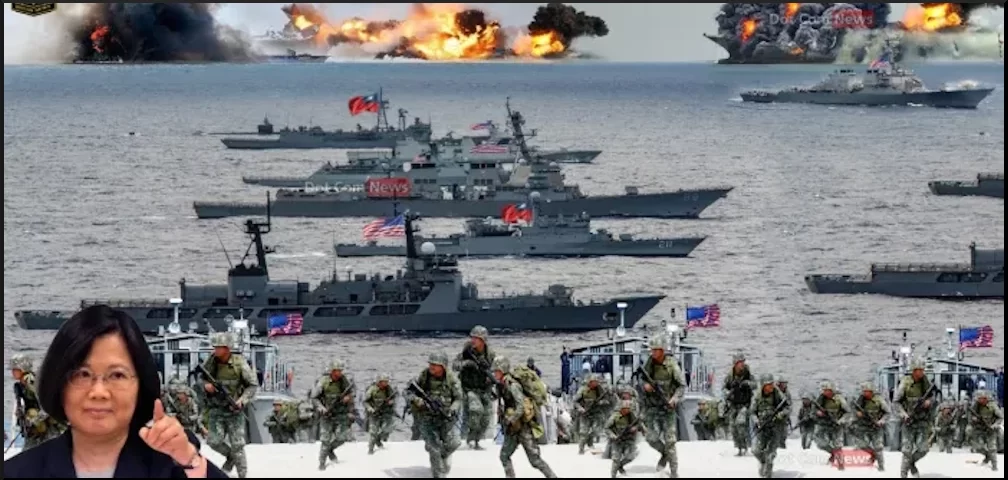by Sara Flounders, published in CovertAction Magazine, April 27, 2023
While the U.S.-NATO war against Russia in Ukraine continues unabated, the U.S. is preparing at breakneck speed for war with China, using Taiwan as the excuse. Taiwan, like Ukraine, is a pawn. The military and economic threats on both China and Russia are a desperate bid to quash the emergence of a multipolar world.
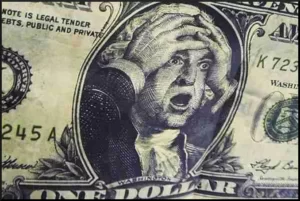
Even more threatening to U.S. capitalists is that China is developing trade relations with the 40 countries sanctioned by Washington, and they are doing this by barter and direct currency exchanges. This works around the almighty dollar, the international reserve currency that has dominated global trade and capital flows for 100 years.
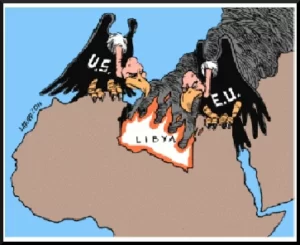
The aspiration to break free from U.S. corporate control is today being challenged by many more countries. China is a more formidable opponent, surpassing the U.S. in gross domestic product and the development of its economy. China is the top trading partner to more than 120 countries and the largest external trading partner of the European Union.
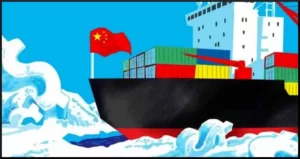
China and a growing number of countries are in an increasingly stronger position to resist the U.S.’s unequal demands. Countries with three-quarters of the world’s population refused to go along with sanctions on Russia. Will they be willing to accept U.S. sanctions on China?
All of this poses a threat to the hegemony of the U.S., the center of world imperialism. The capitalist system is relentlessly driven to expand or die—and now it is shrinking. For multi-billionaires and corporate CEOs, this is a life-or-death crisis.
Provoking Conflict to Retain Hegemony
U.S. strategy is to sabotage Taiwan and its trade with China by creating conflicts and imposing sanctions. These desperate efforts to reverse Washington’s declining global position will disrupt the global economy.
Presently, Taiwan’s trade with China is far bigger than its trade with the U.S. Mainland China and Hong Kong accounted for 42% of Taiwan’s exports last year, while the U.S. had only a 15% share, according to official Taiwanese data.
For Taiwan’s imports, mainland China and Hong Kong again ranked first with a 22% share. The U.S. only had a 10% share, ranking behind Japan, Europe and Southeast Asia. South Korea and Japan have greater trade levels with China than with the U.S. (cnbc.com)
The problem U.S. imperialists face is how to reverse this—how to force countries in the Asia Pacific to act against their own economic interests.
The U.S.-NATO war in Ukraine was a strategy to impose sanctions on Russia and to break the EU’s trade with Russia. In 2020 the EU was Russia’s leading trading partner; 36.5% of Russia’s imports came from the EU, and 37.9% of its exports went to the EU. The EU was the largest investor in Russia. Russian trade with the EU has since been reduced to 5.8%.
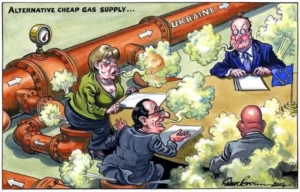
U.S. threats and escalating demands to sanction China will severely damage the economies of Taiwan, Japan, South Korea and the Philippines.
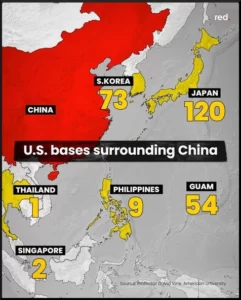
The U.S. is frantically seeking to stop China’s economic rise by militarily encircling it. Utilizing Taiwan, Japan, South Korea, Australia and the Philippines, U.S. strategy is to create an Asian version of NATO, a military alliance to disrupt economic cooperation in Asia. This is a terrible danger to the people of Taiwan and the People’s Republic of China. Throughout the entire region, people face a U.S.-created crisis that can destroy their lives and futures and ruin their economies.
Poor and working people in the U.S. will be forced to pay for this war, as they pay for every war with steadily deteriorating conditions.
China Is One!
In the drive to find an excuse for war, the U.S. government is reversing the position it agreed to and signed with China more than 50 years ago.
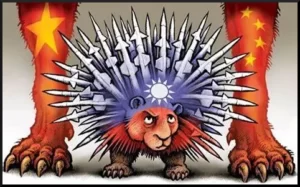
Washington is openly violating three signed agreements—joint communiques it made with China in 1972, 1979 and 1982—affirming that China is one country and Taiwan is a province of China. Such commitments are the political foundation for China’s diplomatic relationship with the U.S. and with every country.
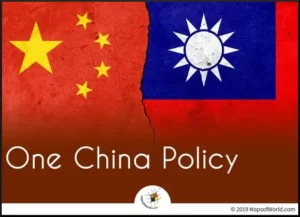
Instead of adherence to the One-China Policy, dangerous mobilization is taking place on military and political levels. The recent manufactured crisis over a Chinese hot air balloon followed by congressional hearings grilling the CEO of TikTok represent new levels in psychological war propaganda, designed to convince the U.S. population that China is an enemy and a threat.
Democrats and Republicans try to outdo each other in condemning China. Taiwan was referred to as “the beating heart to our Indo-Pacific strategy” by Senate Foreign Relations Committee Chairman Bob Menendez, a Democrat.
Military preparations against China include U.S. pressure for Japan to double its military budget and become the third largest military in the world, in violation of the Japanese Constitution.
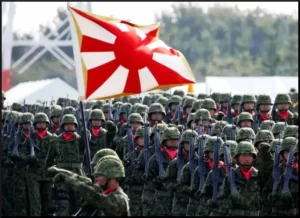
More ominously, in early February, four-star Air Force General Michael Minihan, head of the Pentagon’s Air Mobility Command, in a “leaked memo” predicted war with China over Taiwan in two years. Gen. Minihan oversees 107,000 airmen and 1,100 cargo, tanker and transport planes. The memo includes training, drills and preparations for war in 2025 and specific orders: “Defeat China” and “Be prepared for deployment at a moment’s notice.”
Another threat was the largest-ever launch from a U.S. base of huge C-17 transport aircraft on January 5, as training for a naval blockade of China. This is the opening round of a massive missile-and-air assault on mainland China—the Pentagon’s Air-Sea Battle strategy.
The U.S. Pacific Fleet consists of approximately 200 ships and submarines, nearly 1,200 aircraft and more than 130,000 sailors and civilian workers. The U.S. regularly sends naval patrols and destroyers through the 180-km-wide Taiwan Strait (about 112 miles).
China condemned these arrogant displays of U.S. military power as reckless, provocative and meant to apply pressure.
Taiwan’s “President” Visits U.S.
Inflated media coverage greeted the visit to New York City of Tsai Ing-wen, the so-called “president” of Taiwan. (“President” is in quotation marks because Taiwan is recognized as an island province of China and not as an independent country by the UN and 181 countries.)
Chinese Foreign Ministry spokesperson Mao Ning objected to this Taiwanese delegation visit and the receptions held in Tsai Ing-wen’s honor, as a violation of the One-China Policy: “China firmly opposes any form of official interaction between the U.S. and Taiwan.” Mao Ning said the U.S. was “conducting dangerous activities that undermine the political foundation of bilateral ties.”
Xu Xueyuan, charge d’affaires at the Chinese embassy in Washington, said China does not accept the U.S. claims that Tsai’s trip is merely a “transit,” saying “the so-called ‘transit’ is merely a disguise to her true intention of seeking breakthrough and advocating Taiwan independence” and accuses the U.S. of allowing Tsai to “make a splash” and of arranging her meeting with House Speaker Kevin McCarthy.
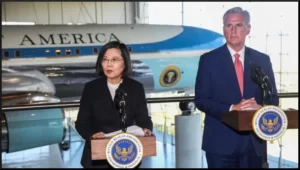
The visit reinforces Tsai Ing-wen’s standing, at a time when she is in a seriously weakened political position. She was forced to resign as head of the ruling Democratic Progressive Party of Taiwan, after her party suffered a major setback in local elections in November, which was the DPP’s worst performance since its founding in 1986. The election debacle confirms that the DPP’s aggressive stand on independence is losing support in Taiwan.
Tsai Ing-wen’s visit to Guatemala and Belize, two of only 13 remaining countries that recognize Taiwan, was overshadowed by the Honduran Foreign Ministry’s announcement that its government now recognized “only one China in the world” and that Beijing “is the only legitimate government that represents all of China.”
The statement added that “Taiwan is an inalienable part of Chinese territory, and as of today the Honduran government has informed Taiwan of the severance of diplomatic relations, pledging not to have any official relationship or contact with Taiwan.” Honduras is the ninth diplomatic ally Taiwan has lost since the pro-independence Tsai first took office in May 2016.
China has held a consistent, well-understood position on its sovereignty and territorial integrity that is recognized internationally in all world bodies. China has repeatedly asserted its right to resolve this unfinished national reunification. China’s long-held position is that cooperation, trade and development can overcome differences; it is the only way forward.
The preparation of U.S. imperialism for a possible war with China—surrounding it with military bases, nuclear weapons and military vessels—is a highly dangerous provocation. U.S. wars are for corporate profit.
We must mobilize! U.S. hands off China!
Sara Flounders is an American political writer active in progressive and anti-war organizing since the 1960s.
She is a Contributing Editor of the Marxist Workers World newspaper as well as a principal leader of the International Action Center. Sara also works actively with the SanctionsKill Campaign and United National Antiwar Coalition.
Sara can be reached at flounders.sara16@gmail.com
